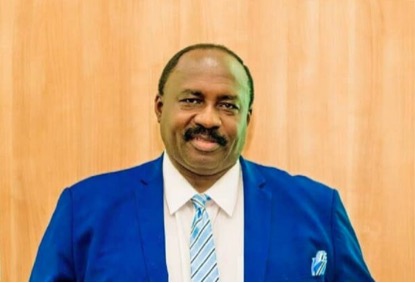By Amofokhai Williams
The Nigeria Civil Aviation Authority (NCAA) has introduced a stringent new regulation requiring all passengers to completely switch off their mobile phones and other portable electronic devices during the critical phases of flight take-off and landing.
The directive, announced by NCAA Director-General Capt. Chris Najomo during an emergency National Civil Aviation Security Committee (NCASC) meeting in Abuja on Tuesday, marks the end of the long-standing practice of allowing devices to remain in “flight mode.”
The decision follows recent incidents of unruly passenger behaviour at Nigerian airports, including a high-profile altercation on an Ibom Air flight from Uyo to Lagos on August 10, where a passenger reportedly refused to comply with safety instructions to switch off their phone.
Capt. Najomo emphasized that the new rule aims to eliminate confusion, enhance safety, and prevent potential disruptions to aircraft systems.
“All mobile phones, I repeat, all mobile phones and other portable electronic devices should be switched off during at least the critical phase of flight on all Nigerian airlines. There’s nothing like flight mode any longer,” he stated during the meeting.
To enforce the directive, Najomo has instructed all Nigerian airline operators to amend their Operations Manuals to reflect the new requirement and submit them to the NCAA for immediate approval.
He stressed that crew members are responsible for communicating this rule to passengers, while passengers must comply to ensure flight safety.
The NCAA also plans to launch public enlightenment campaigns, including radio jingles and TV series, to educate travelers on their responsibilities.
“We’re going to make sure passengers are informed of their obligations. Things will not be business as usual,” Najomo warned.
The emergency NCASC meeting was convened to address growing concerns over passenger misconduct and security lapses at Nigerian airports.
Najomo highlighted the importance of inter-agency collaboration among the NCAA, Federal Airports Authority of Nigeria (FAAN), aviation security personnel, and law enforcement to strengthen safety protocols.
He announced plans for mock response exercises in Lagos and Abuja next week to test readiness and ensure compliance.
“If you think you’re going to come and be an unruly passenger, we’re waiting for you,” he said, underscoring the NCAA’s commitment to stricter enforcement.
Aviation experts have long cautioned that active electronic devices, even in flight mode, can potentially interfere with aircraft avionics, which rely on sensitive sensors for navigation, communication, and collision avoidance.
While no crashes have been directly linked to such interference, global regulations, including Nigeria’s Civil Aviation Act 2022, justify the prohibition of device use during critical flight phases to mitigate risks.
As Nigeria’s aviation sector grapples with these challenges, Najomo emphasized the need for professionalism and training to manage unruly behaviour effectively.







